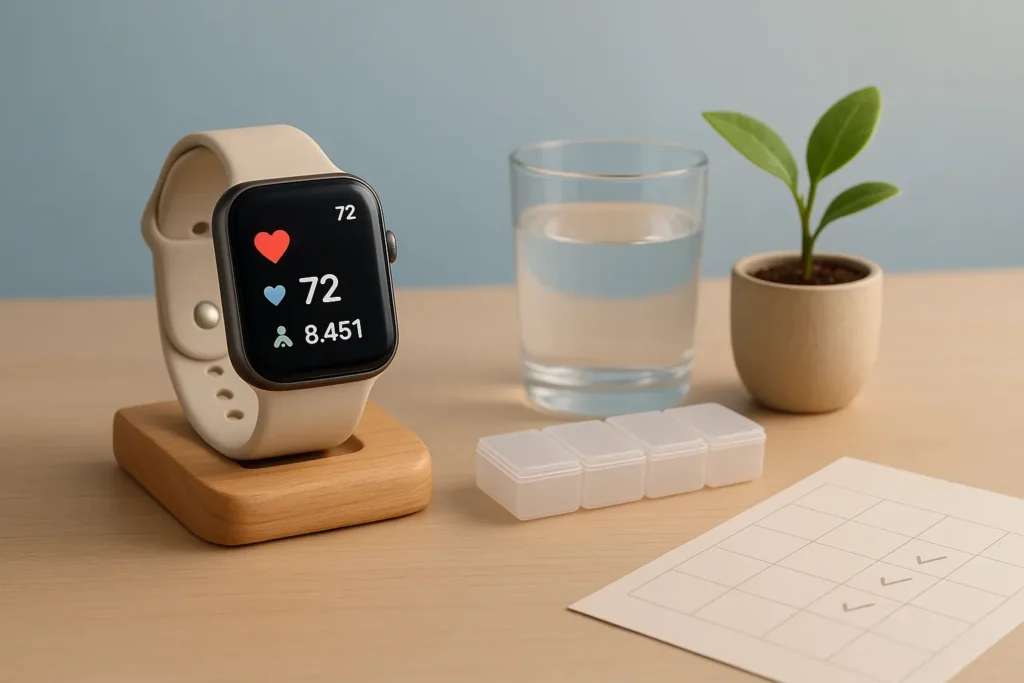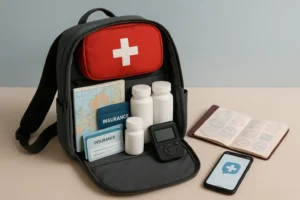Healthcare professionals consistently emphasize that early detection and prevention are crucial for maintaining optimal health outcomes. This article shares compelling real-world examples of how timely medical attention has transformed lives and businesses by addressing issues before they become severe. Expert insights reveal practical strategies for setting personal health baselines and recognizing important body signals that shouldn’t be ignored.
- Regular Screenings Catch Problems Without Symptoms
- Set Personal Baselines to Protect Health
- Address Minor Discomforts Before Baseline Shifts
- Addressing Energy Crashes Transformed My Business
- Listening to Your Body Saved My Arm
- Early Action Prevents Serious Health Issues
Regular Screenings Catch Problems Without Symptoms
When I think about the importance of being proactive in healthcare, one patient’s story comes to mind. She was in her early 40s, busy with work and family, and had no obvious health complaints. Still, she made it a point to keep up with her regular screenings, even when life felt hectic. During a routine exam, a very early-stage cervical abnormality was detected – something she hadn’t noticed because she felt completely fine. Because it was caught so early, her treatment was much less intensive, and she was able to make a full recovery with minimal long-term effects.
What stood out to me was not just the outcome but the fact that her decision to prioritize her health – despite having no symptoms – changed the course of her life. Many cancers, including cervical, breast, and colon, often don’t cause obvious symptoms until they’re more advanced. That’s why staying proactive matters so much.
Here’s the advice I share with others:
– Never ignore routine checkups and screenings. They are often the key to catching something before it becomes serious.
– Pay attention to small changes in your body. Even if they seem minor, bring them up to your doctor.
– Don’t put your health last. Work and family are important, but you can only care for others if you also care for yourself.
– Seek information and ask questions. Being informed helps you make better decisions about your health.
Being proactive doesn’t mean living in fear – it means taking small, consistent steps to stay ahead. My patient’s story is a reminder that those steps can be life-saving and allow people to move forward with strength and confidence.

Set Personal Baselines to Protect Health
For me, being proactive has less to do with catching problems early and more to do with never giving them a place to grow. That being said, I always recommend setting personal baselines and checking in with them regularly even when nothing feels off. Blood pressure, sleep quality, energy, weight trends, skin changes… just keeping tabs on your normal rhythm gives you the upper hand. You can spot when something dips or spikes before it spirals. Think of it like tending to a garden rather than pulling weeds. A little attention saves a lot of recovery later.
If I had to give a piece of advice, it would be this: do not wait to feel bad to make good choices. You know your body better than anyone. You know what throws it off. You know what keeps it steady. Treat your health like something you manage, not something you repair. Better yet, treat it like something you protect.

Address Minor Discomforts Before Baseline Shifts
One of the most valuable lessons I’ve learned about healthcare is that “proactive” doesn’t just mean spotting disease early—it also means avoiding a slow drift into a state you wouldn’t have chosen for yourself. A few years ago, I kept getting these recurring stomach issues. Nothing dramatic enough to send me rushing to the ER, but just disruptive enough that I was always “managing” it. If I hadn’t pushed for tests early, it would’ve been easy to normalize the discomfort and accept it as part of life. Turned out it was a food sensitivity that could’ve spiraled into something chronic. By catching it, I sidestepped years of low-level suffering that could have quietly limited my energy and focus.
The unusual thing I realized is that the baseline you accept becomes invisible. Most people don’t notice how far their “normal” has drifted until it collapses. That’s what proactive healthcare prevents: you reset the baseline before it gets warped.
My advice? Don’t just wait for obvious symptoms. Pay attention to small but persistent friction in your body—poor sleep, subtle aches, recurring indigestion—and treat them like you would a strange noise in your car. If your engine started rattling every morning, you wouldn’t wait until it exploded on the freeway. The body deserves the same urgency.
That mindset shift—treating early discomforts as signals instead of nuisances—has kept me healthier, sharper, and able to show up fully for my team and company.

Addressing Energy Crashes Transformed My Business
You know what? I used to be terrible at this. The thing is, I always thought I was invincible, classic entrepreneur mindset. But about three years ago, I started getting these weird energy crashes mid-afternoon. Instead of just pounding more coffee like usual, I actually went and got bloodwork done. Turns out my vitamin D was basically non-existent and my thyroid was sluggish.
Getting that sorted changed everything. My focus improved, decision-making got sharper, and honestly, my business grew because I wasn’t running on fumes anymore.
My advice? Stop treating your body like a machine you can just push harder. Those annual checkups aren’t just for old people. And if something feels off, don’t wait six months hoping it’ll fix itself. The time you lose being sick costs way more than a doctor’s visit. Your business needs you functioning at full capacity.

Listening to Your Body Saved My Arm
On February 1st, 2024, I went to urgent care because my right arm was in immense pain. I was unsure of what was wrong because I did not do any strenuous activities or have any recent injuries. The best way I can describe the pain was as if you were to sleep on your arm wrong the entire night. After several hours and many tests later, it was discovered that I had a big blood clot in my right shoulder, a blood clot in my left lung, and a blood clot in my right lung. Now, one might look at the diagnosis and see this as a negative outcome, but it isn’t. My doctor told me that if I wasn’t proactive and didn’t come in to get checked out, I would have been at risk for losing my entire right arm or worse. It is so important to be proactive with your health and get things checked out sooner rather than later. My advice to others about the importance of proactive healthcare is this: listen to your body and don’t wait to get medical attention when something feels off. Being proactive can save your life.

Early Action Prevents Serious Health Issues
When I was in college, I noticed subtle changes in my energy and focus, but I initially dismissed them as part of a busy student schedule. Despite the demands of classes and extracurriculars, I decided to schedule a routine checkup, just to be safe. During that visit, the tests revealed early signs of a condition that, if left unchecked, could have worsened over time. Because I addressed it proactively, I was able to make lifestyle adjustments and set up regular monitoring that helped me feel better quickly and prevented more serious health issues down the road. That experience taught me a powerful lesson: taking charge of your health early can make a significant difference.
Advice I give to my patients:
Listen to your body: Pay attention to subtle changes in energy, mood, or physical function.
Schedule regular checkups: Routine screenings can catch potential issues before they become serious.
Speak up about concerns: Don’t ignore symptoms, even if they seem minor.
Adopt preventive habits: Focus on balanced nutrition, regular exercise, stress management, and adequate sleep.
Stay consistent: Proactive healthcare is an ongoing commitment, not a one-time effort.
Taking these steps empowers you to prevent complications, improve overall well-being, and maintain a healthier, more confident life.












